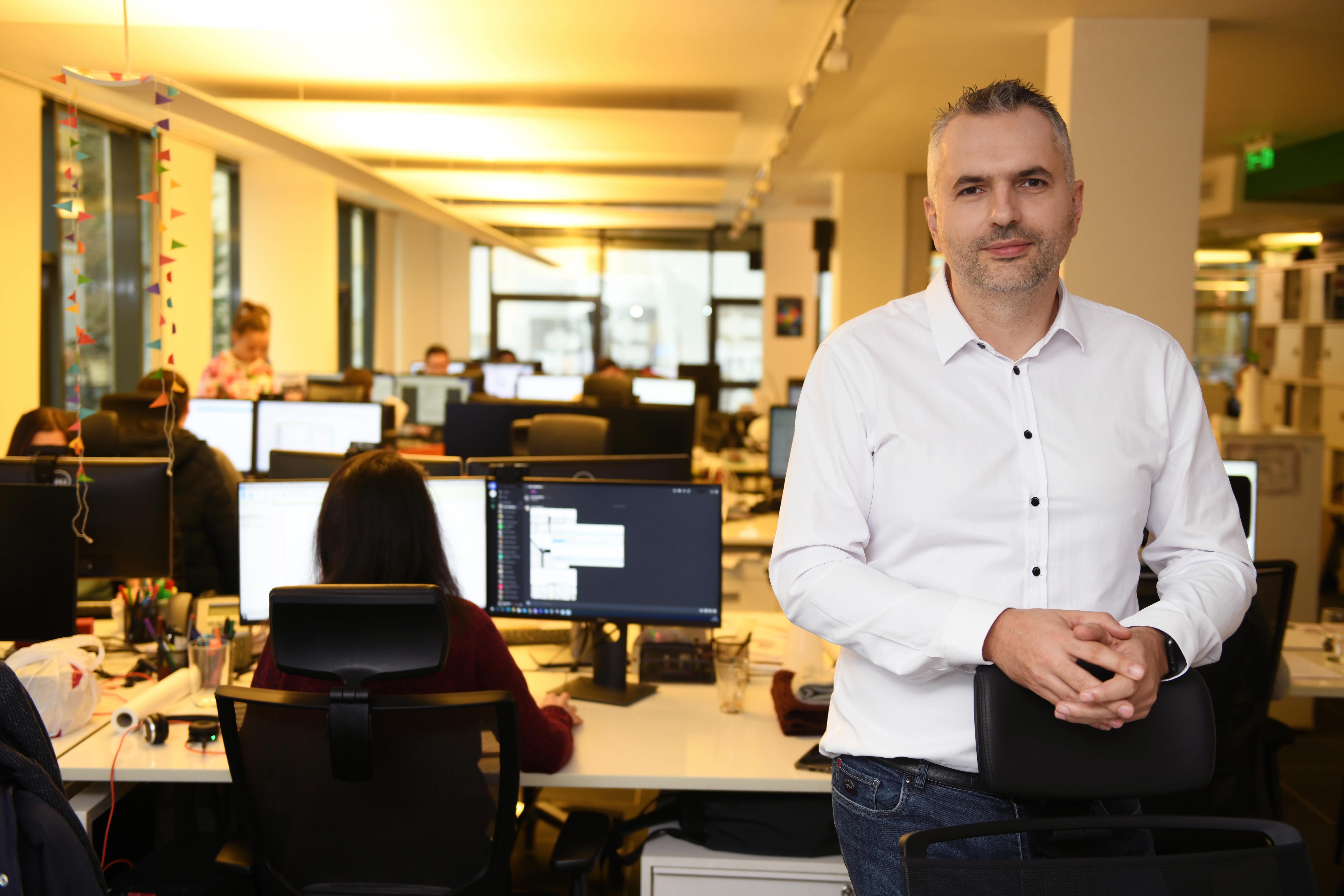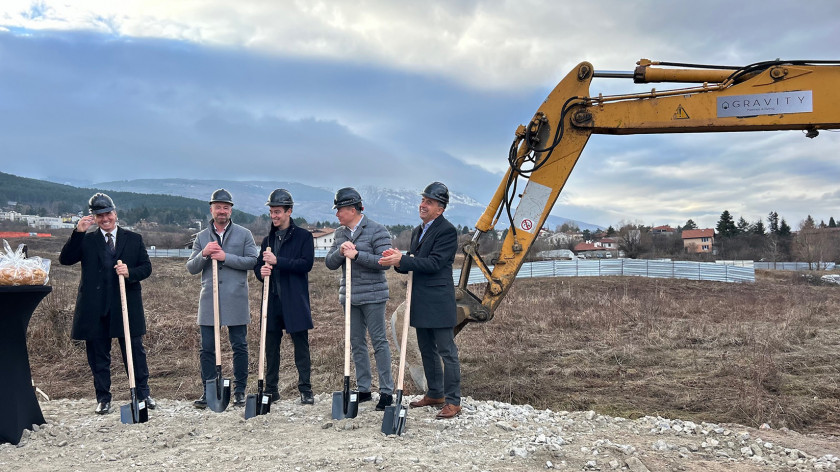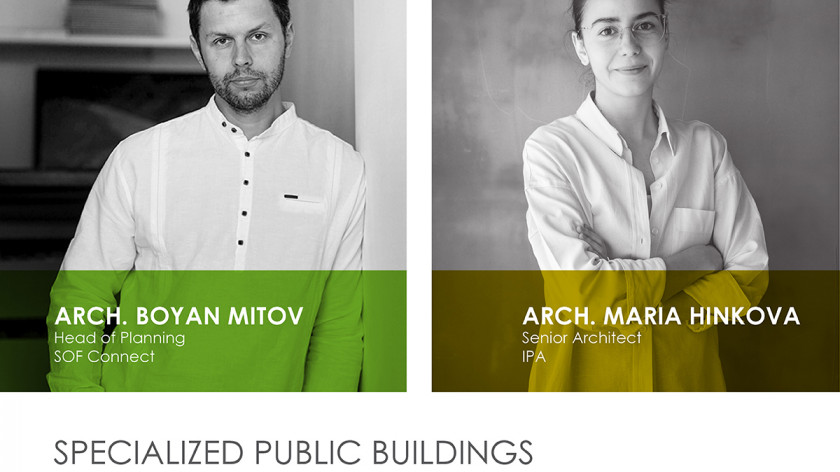What does it take to be a professional architect?
Can you tell me what the education requirements are?
Architecture is one of the few specialties that isn't part-time, like medicine. Architects have so much responsibility, they need to prepare really well. A master's degree is needed to become an architect. Many Bulgarian students choose the tradition of studying at UACG, with other universities still catching up. The company also hires a lot of people who graduated abroad. As it turns out, if you don't know the local laws, it's quite difficult to adapt abroad, regardless of your level of education.
We've noticed, for instance, that foreign universities prepare their students mostly in concepts and conceptual projects, and they require nearly two years of internship before they graduate. RIBA (Royal Institute of British Architects) is like that too. In this way, young architects can learn from real architecture and then adorn themselves with the abbreviation arch.
We have a big problem with just graduated students not knowing how to do purely technical design. As students, they make projects for operas, skyscrapers, and other grandiose things, but don't pay attention to the most practical skills that you need in everyday life.
Bulgarian architecture students: how prepared are they?
Architects don't get there without diligent work at university. Although theory is fundamental to the profession, things are different in practice, as they are in many other fields. We're running our internship program "Quick Start for Architects" for the second year in a row. Within two months, all participants face real cases, and they get a mentor from the first day. We drop them in the deep after they pass the training, which also includes "soft skills" because you need to be able to sell your project, as well as design it. In other words, they start working on real projects.
This is just our know-how. Every year we upgrade this program and we're glad to have quality, ambitious young people coming to us. The first year we accepted 22 applications. 6 passed the program and 4 received an employment contract. There were 35 candidates this year. 7 stayed on internships.
In what ways does the work process present challenges and responsibilities?
Architects are as much artists as scientists. We all want to implement bold, innovative projects. We have other expectations of the environment. In Bulgaria, architecture solves many business and life problems. A truly talented architect can create an aesthetic environment that educates and meets the client's needs. In all our projects, we strive for practicality and creativity.
An architect must also manage the necessary resources and time, both during the design and construction phases. Anybody can take a long time and spend a lot of money on a good project, but few can meet the customer's needs for speed and efficiency. We develop our team as artists, technical experts, and project managers. As a result, we're different from many other companies in Bulgaria and Europe.
It's also the architect's job to serve as a coordinator and expert among all the parties involved in the investment and construction process. Being able to understand the needs of both the client and participants and the project itself is a big part of the design process.
Creating an aesthetically pleasing and functional architecture is also critical. It's a huge responsibility to create something that will be part of people's lives for a century or more.
Young architects, what are their chances of professional success and financial reward?
There's a lot of truth to the idea that architecture is a vocation, not just a job. A good place to gain experience as an architect is one where you can get a lot in a short time. Some of our colleagues started as interns 6-7 years ago and are now team leaders. That's why now we have a clear career path. You can start as an intern, and if you want to develop, work and learn new skills, we'll give you a chance with more challenging and responsible tasks. Training is an investment in the company, not just in people. More capable people on the team make the company stronger.
The pay in this profession is related to the pay in the industry. It's usually architects themselves who drive down the cost of architectural services. Having competition is helpful and dangerous because you can lower the price, but you can't design it. Investors and customers come to us not just for a reasonable price, but also for quality and security. It's all about managing a serious resource and having a talented team. In terms of employee pay, we try to be adequate, taking into account market opportunity. Providing good service and on time will result in more business.
In order to improve your people skills, what sources do you use?
This is something we're proud of. We invest a lot in our team's skills. There are a few programs related to this. For example, when someone joins the team, we prepare an introduction program for him.
It's a company practice to develop people's skills. Besides external training, we work with a business coach and we use our huge library of internal knowledge.
There are 28 training modules in our knowledge and skills development program, which is like 5-6 semesters at university. Everyone takes part, getting involved where it's relevant at this time.
We've found that sharing experiences is a very effective way to learn. We're always organizing case studies and exploring problems and challenges in projects. This is how we create a resource of shared knowledge while working.
Is it teamwork or individual work?
Architecture used to be thought of as a solitary profession. In addition to fame, the profession has a tone of responsibility. According to a recent study by the Association of Architects in Bulgaria among active architects, teamwork is one of the strongest motivations for architects. For me, it was very curious to learn that salary wasn't really a factor anymore, but rather the environment, the team, and the opportunities for development.
Whenever people can exchange ideas, get a discussion, and refine each project, the best results are achieved.
Everybody at IPA can rely on the professionalism of their colleagues, and our internal organization allows us to handle client projects more easily.
Is there anything an architect shouldn't do?
We shouldn't separate architecture from everything around us. Architecture isn't a goal in itself. Architects shouldn't do something impressive just to get noticed. Think about how your building fits into the middle without interfering with it and always subordinate creative approach to functionality. As you plan your building, you should also consider the people who will use it and those who will simply see it as part of the city.
Building a residential complex, for instance, is no longer enough. Design, materials, and space between the blocks are equally significant, as are places for children's play and underground parking.
Here's an example of a project that we're really proud of: Residential Park Lozen and GORA in Sofia, where we met all these points despite the challenges.
In the last 10 years, what has changed in the profession?
I'd like to point out technologies that let us be more flexible, more creative, and think from different perspectives. We used to draw by hand, then we switched to more basic programs, now we use smarter ones.
Our profession is being transformed through a new technological revolution at the moment, and it's reflected in the fact that we'll soon be able to produce ready-made items directly – I give an elementary example with a window – you set exact dimensions, parameters, colors, and the machine makes the frame, another assembles the glazing.
What is the future of the architectural profession?
I think architects will have more responsibility to change people's lives. I will list an example of how sometimes it becomes imperceptible to people, sometimes it is accompanied by dissatisfaction, such as converting the center of a city into a pedestrian zone, which is a big challenge for everyone and in fact is the process of overcoming its disadvantages.
Many European cities have always had a fitting period like this. Architects need to listen to people's opinions in order to make these changes happen.
How do you personally change the profession?
Work hard. Bring creativity and attitude to the table. Each of our projects is fueled by energy, and we strive for perfection. We're different because we do everything together. So the client can take advantage of the team's potential.






